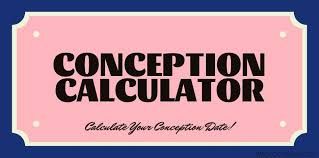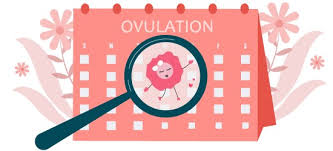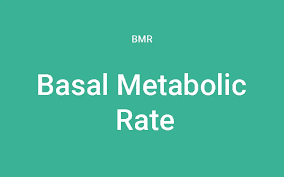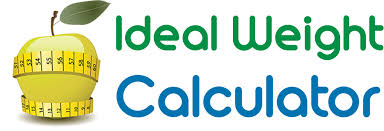Are you trying to conceive or expecting a baby and wondering when you may have conceived? A when did I conceive calculator can help you estimate your conception date and due date. However, not all conception calculators are created equal. It’s important to use the most accurate conception calculator to get the most reliable results. In this article, we’ll explore how to use a “when did I conceive” calculator and discuss the most accurate options available. So, if you’re curious about your conception date or due date, keep reading to learn more about the best conception calculators on the market.
Conception Calculator
[ez-toc]
The Fertile Window
For couples trying to conceive, understanding the fertile window is crucial. The fertile window is the period in a woman’s menstrual cycle when she is most likely to conceive. Knowing when this window occurs can help couples plan when to have sex in order to maximize their chances of getting pregnant. In this article, we’ll discuss what the fertile window is, how to determine when it occurs, and what factors can affect it.
What is the Fertile Window?
The fertile window is the period of time during a woman’s menstrual cycle when she is most likely to conceive. This window typically lasts for six days, with the most fertile days being the day of ovulation and the five days leading up to it. Ovulation is when an egg is released from the ovary and travels down the fallopian tube, where it can be fertilized by sperm.
How to Determine Your Fertile Window
There are several ways to determine when your fertile window occurs. The most accurate method is to track your menstrual cycle using a calendar or an app. This involves keeping track of the first day of your period and the length of your cycle. The fertile window occurs around 14 days before your next period is due, so if you have a regular 28-day cycle, your fertile window will be around day 14. However, if you have an irregular cycle, tracking your ovulation with an ovulation predictor kit (OPK) or basal body temperature (BBT) chart can be more accurate.
Factors That Affect the Fertile Window
Several factors can affect the length and timing of the fertile window. These include:
Age: Women are most fertile in their 20s and early 30s. Fertility declines as women age, with a sharp drop after age 35.
Hormonal imbalances: Hormonal imbalances, such as polycystic ovary syndrome (PCOS), can affect ovulation and the timing of the fertile window.
Lifestyle factors: Smoking, excessive alcohol consumption, and being overweight or underweight can all affect fertility.
Stress: High levels of stress can interfere with ovulation and the timing of the fertile window.
Medications: Certain medications, such as antidepressants and chemotherapy drugs, can affect fertility.
Understanding your fertile window is essential if you are trying to conceive. By tracking your menstrual cycle and paying attention to factors that can affect your fertility, you can increase your chances of getting pregnant. If you have been trying to conceive for a year without success, it is important to speak to your doctor, who can help identify any underlying fertility issues and recommend treatment options.

Making the Fertility Window Work for You
The fertile window is a critical time for couples who are trying to conceive. It is the period of time during a woman’s menstrual cycle when she is most likely to get pregnant. By understanding when the fertile window occurs and how to maximize your chances of conception during this time, you can increase your odds of getting pregnant. In this article, we’ll explore some tips and strategies for making the fertility window work for you.
Track Your Menstrual Cycle
The first step in making the fertility window work for you is to track your menstrual cycle. This can help you identify when your fertile window occurs. There are several ways to do this, including using a menstrual calendar or a fertility tracking app. By tracking your cycle for a few months, you can start to identify patterns and predict when your fertile window is likely to occur.
Use an Ovulation Predictor Kit
Another way to identify your fertile window is to use an ovulation predictor kit (OPK). These kits detect the surge in luteinizing hormone (LH) that occurs just before ovulation. By using an OPK, you can pinpoint the exact day of ovulation and increase your chances of getting pregnant.
Have Sex Regularly
Having sex regularly throughout your cycle can also increase your chances of getting pregnant. While the fertile window is the best time for conception, having sex regularly can help ensure that sperm are present and ready to fertilize the egg when ovulation occurs. Experts recommend having sex every two to three days throughout your cycle.
Focus on Timing
Timing is critical when it comes to making the fertility window work for you. During the fertile window, sperm can survive for up to five days inside the female reproductive tract. This means that having sex in the days leading up to ovulation can also increase your chances of getting pregnant. Experts recommend having sex every other day during the fertile window to maximize your chances of conception.
Pay Attention to Your Health
Your health can also affect your fertility. Maintaining a healthy weight, getting regular exercise, and eating a balanced diet can all help improve your chances of getting pregnant. Avoiding tobacco, alcohol, and drugs can also help increase your odds of conception.
The fertility window is a critical time for couples who are trying to conceive. By tracking your menstrual cycle, using an ovulation predictor kit, having sex regularly, focusing on timing, and paying attention to your health, you can increase your chances of getting pregnant. If you have been trying to conceive for a year without success, it is important to speak to your doctor, who can help identify any underlying fertility issues and recommend treatment options.
What is Conception ? – Meaning of Conception
Conception is the process by which a sperm fertilizes an egg, resulting in the formation of a zygote. This zygote will eventually develop into an embryo and then a fetus. Conception is the first step in the process of human reproduction, and understanding it is critical for couples who are trying to conceive. In this article, we’ll explore the meaning of conception and what happens during this process.
What Happens During Conception?
Conception occurs when a sperm cell successfully penetrates an egg cell. This typically happens in the fallopian tube, which is where the egg travels after being released from the ovary. Sperm can survive in the female reproductive tract for up to five days, so if intercourse occurs in the days leading up to ovulation, there is a chance that sperm will be present when the egg is released. If a sperm cell successfully fertilizes the egg, the resulting zygote will start to divide and develop into an embryo.
Factors That Affect Conception
Several factors can affect the process of conception, including:
Age: Fertility declines as women age, with a sharp drop after age 35. Men’s fertility also declines with age.
Health: Certain health conditions, such as polycystic ovary syndrome (PCOS), can affect ovulation and fertility.
Lifestyle factors: Smoking, excessive alcohol consumption, and being overweight or underweight can all affect fertility.
Timing: Conception is most likely to occur during the fertile window, which is the period of time during a woman’s menstrual cycle when she is most likely to get pregnant.
Conception is the process by which a sperm fertilizes an egg, resulting in the formation of a zygote. Understanding the meaning of conception is critical for couples who are trying to conceive. By paying attention to factors that can affect conception, such as age, health, lifestyle factors, and timing, couples can increase their chances of getting pregnant. If you have been trying to conceive for a year without success, it is important to speak to your doctor, who can help identify any underlying fertility issues and recommend treatment options.
How to Calculate Conception date accurately ?
Calculating your conception date can be helpful if you are trying to determine your due date or if you want to know when you conceived. While it is not always possible to pinpoint the exact day of conception, there are several methods you can use to estimate when it occurred. In this article, we’ll explore some tips and strategies for calculating your conception date accurately.
Know Your Menstrual Cycle
One of the best ways to estimate your conception date is to know your menstrual cycle. Most women have a menstrual cycle that lasts around 28 days, but some women have longer or shorter cycles. To calculate your conception date, start with the first day of your last menstrual period (LMP) and add 280 days, which is the average length of a pregnancy. This will give you an estimated due date, which is usually around 40 weeks from the first day of your last period.
Use an Ovulation Predictor Kit
Another way to estimate your conception date is to use an ovulation predictor kit (OPK). These kits detect the surge in luteinizing hormone (LH) that occurs just before ovulation. By using an OPK, you can pinpoint the day of ovulation and estimate when conception occurred. However, it’s important to remember that sperm can survive in the female reproductive tract for up to five days, so conception could occur up to five days after ovulation.
Use a Fertility Tracking App
Fertility tracking apps can also be helpful for estimating your conception date. These apps use data such as your menstrual cycle length, basal body temperature, and cervical mucus to predict your fertile window and estimate when conception may have occurred. While these apps can be helpful, they are not always accurate, so it’s important to use other methods as well.
Get an Ultrasound
If you are unsure about your conception date, your doctor can perform an ultrasound to estimate when you conceived. During an ultrasound, the doctor will measure the size of the fetus and compare it to a chart of fetal growth. This can help determine when conception occurred and provide a more accurate due date.
Calculating your conception date can be helpful for determining your due date or if you want to know when you conceived. While it is not always possible to pinpoint the exact day of conception, using methods such as knowing your menstrual cycle, using an ovulation predictor kit, using a fertility tracking app, and getting an ultrasound can help estimate when it occurred. If you have questions about your conception date or due date, it’s important to speak to your doctor, who can provide guidance and support throughout your pregnancy.
Conception date – when did I conceive ?
Knowing your conception date can be helpful if you are trying to determine your due date or if you want to know when you conceived. However, calculating your conception date can be a little tricky because it is not always possible to pinpoint the exact day of conception. In this article, we’ll explore some tips and strategies for determining your conception date.
Calculate Your Due Date
The first step in determining your conception date is to calculate your due date. Most women have a menstrual cycle that lasts around 28 days, so if you know the first day of your last menstrual period (LMP), you can estimate your due date by adding 280 days to the first day of your LMP. This will give you an estimated due date, which is usually around 40 weeks from the first day of your last period.
Estimate Your Fertile Window
To estimate your conception date, you need to know your fertile window. The fertile window is the period of time during your menstrual cycle when you are most likely to get pregnant. This window typically lasts for six days, with the most fertile days being the day of ovulation and the five days leading up to it.
There are several ways to estimate your fertile window, including tracking your menstrual cycle, using an ovulation predictor kit (OPK), or using a fertility tracking app. These methods can help you identify the days when you are most likely to get pregnant and estimate when conception may have occurred.
Consider Other Factors
While calculating your due date and estimating your fertile window can help determine your conception date, it’s important to remember that other factors can also affect when you conceived. For example, sperm can survive in the female reproductive tract for up to five days, so conception could occur up to five days after ovulation. Additionally, implantation can take several days, which can also affect when you conceive.
Get an Ultrasound
If you are unsure about your conception date, your doctor can perform an ultrasound to estimate when you conceived. During an ultrasound, the doctor will measure the size of the fetus and compare it to a chart of fetal growth. This can help determine when conception occurred and provide a more accurate due date.
Determining your conception date can be helpful for determining your due date or if you want to know when you conceived. While it can be a little tricky to calculate your conception date, using methods such as calculating your due date, estimating your fertile window, and getting an ultrasound can help. If you have questions about your conception date or due date, it’s important to speak to your doctor, who can provide guidance and support throughout your pregnancy.
Conception based on Last period
Calculating your conception date based on your last period can be helpful if you are trying to determine your due date or if you want to know when you conceived. While it’s not always possible to pinpoint the exact day of conception, there are several methods you can use to estimate when it occurred. In this article, we’ll explore how to estimate your conception date based on your last period.
Understanding Your Menstrual Cycle
Before we can estimate your conception date based on your last period, it’s important to understand your menstrual cycle. Most women have a menstrual cycle that lasts around 28 days, but some women have longer or shorter cycles. The menstrual cycle is counted from the first day of your last period to the first day of your next period.
Estimating Your Due Date
To estimate your due date, start with the first day of your last period and add 280 days, which is the average length of a pregnancy. This will give you an estimated due date, which is usually around 40 weeks from the first day of your last period.
Estimating Your Fertile Window
To estimate your conception date, you need to know your fertile window. The fertile window is the period of time during your menstrual cycle when you are most likely to get pregnant. This window typically lasts for six days, with the most fertile days being the day of ovulation and the five days leading up to it.
While it’s not always possible to know exactly when you ovulated, you can estimate your fertile window based on the length of your menstrual cycle. If you have a regular 28-day cycle, your fertile window is likely to occur around day 14. However, if you have an irregular cycle, tracking your ovulation with an ovulation predictor kit (OPK) or basal body temperature (BBT) chart can be more accurate.
Calculating Your Conception Date
Once you have estimated your fertile window, you can estimate when conception occurred. Conception typically occurs within 24-48 hours after ovulation, but sperm can survive in the female reproductive tract for up to five days. This means that if you have sex in the days leading up to ovulation, there is a chance that sperm will be present when the egg is released.
Based on these factors, you can estimate your conception date to be around two weeks after the first day of your last period. For example, if your last period started on January 1st, your estimated due date would be around October 8th, and your estimated conception date would be around January 15th.
Calculating your conception date based on your last period can be helpful for determining your due date or if you want to know when you conceived. While it’s not always possible to pinpoint the exact day of conception, estimating your due date and fertile window can help you estimate when conception occurred. If you have questions about your conception date or due date, it’s important to speak to your doctor, who can provide guidance and support throughout your pregnancy.
First signs of pregnancy
The first signs of pregnancy can vary from woman to woman, but there are some common early symptoms that many women experience. These symptoms can occur as early as a few days after conception and can include changes in the body and the way you feel. In this article, we’ll explore the first signs of pregnancy and what you can expect during the early stages of pregnancy.
Missed Period
One of the most common signs of pregnancy is a missed period. If you have a regular menstrual cycle and you are late for your period, it could be a sign that you are pregnant. However, some women may experience light bleeding or spotting during early pregnancy, so it’s important to take a pregnancy test to confirm.
Fatigue
Fatigue is another common early symptom of pregnancy. You may feel more tired than usual, even if you are getting enough sleep. This is due to hormonal changes in the body that can cause fatigue and sleepiness.
Nausea and Vomiting
Nausea and vomiting, also known as morning sickness, is a common early symptom of pregnancy. This can occur at any time of the day and can be triggered by certain smells or foods. While it’s called “morning sickness,” it can occur at any time of the day.
Breast Changes
Changes in the breasts are also common early signs of pregnancy. You may notice that your breasts feel sore, tender, or swollen. The nipples may also darken or become more sensitive.
Mood Changes
Mood changes are another common early symptom of pregnancy. You may feel more emotional or irritable than usual. This is also due to hormonal changes in the body.
Cramping and Spotting
Some women may experience cramping and spotting during early pregnancy. This is due to implantation, which occurs when the fertilized egg attaches to the lining of the uterus. While this is normal, it’s important to talk to your doctor if you experience heavy bleeding or severe cramping.
The first signs of pregnancy can vary from woman to woman, but common early symptoms include missed period, fatigue, nausea and vomiting, breast changes, mood changes, and cramping and spotting. If you experience any of these symptoms, it’s important to take a pregnancy test to confirm. If you think you may be pregnant, it’s important to speak to your doctor, who can provide guidance and support throughout your pregnancy.
Most Accurate Conception Calculator
If you are trying to conceive or if you are pregnant and want to know when you conceived, a “when did I conceive” calculator can be helpful. These calculators use information such as the date of your last menstrual period (LMP) and the length of your menstrual cycle to estimate your conception date. In this article, we’ll explore how to use a “when did I conceive” calculator and discuss the most accurate conception calculators available.
How to Use a “When Did I Conceive” Calculator
Using a “when did I conceive” calculator is easy. You simply enter the date of your last menstrual period and the length of your menstrual cycle, and the calculator will estimate your due date and conception date. Some calculators may also ask for the date of ovulation or the date of conception if you know it.
To use this calculator, follow these steps:
Determine the first day of your last menstrual period. This is the first day of bleeding.
Determine the length of your menstrual cycle. This is the number of days between the first day of your period and the first day of your next period.
Enter this information into the “when did I conceive” calculator.
The calculator will estimate your due date and conception date.
Frequently Asked Questions (FAQ) on Conception and Conception Calculator
1. What is Conception, and Why Is It Important to Know When It Occurred?
Conception is the moment when a sperm fertilizes an egg, resulting in the beginning of pregnancy. Knowing the date of conception is crucial for tracking pregnancy milestones, establishing an accurate due date, and understanding the progression of fetal development.
2. What is the Most Accurate Conception Calculator, and How Does It Work?
The Most Accurate Conception Calculator is a tool designed to provide precise estimates of when conception likely occurred. It uses various factors, such as the first day of the last menstrual period (LMP), menstrual cycle length, and additional information, to calculate the conception date with increased accuracy.
3. How Accurate Is the Most Accurate Conception Calculator?
The accuracy of this calculator depends on the accuracy of the information provided. When accurate data, such as the LMP date and cycle length, are entered, the calculator can provide a reliable estimate. However, for the most precise determination, direct medical assessments like ultrasounds may be necessary.
4. Can the Most Accurate Conception Calculator Be Used for All Pregnancies?
The calculator is most effective for pregnancies with regular menstrual cycles and known LMP dates. For pregnancies with irregular cycles or unique circumstances, healthcare providers may use alternative methods to estimate conception.
5. Can I Use the Most Accurate Conception Calculator to Calculate My Due Date?
Yes, once you have the estimated conception date from the calculator, you can calculate the due date by adding approximately 266 days (or 38 weeks) to it. However, keep in mind that due dates are approximations.
6. How Can I Use the “When Did I Conceive?” Calculator?
The “When Did I Conceive?” Calculator is often a feature within the Most Accurate Conception Calculator. To use it, provide the required details, such as your LMP date and cycle length, and the calculator will estimate the conception date for you.
7. Is It Possible to Determine the Conception Date with Absolute Certainty?
Determining the exact conception date with absolute certainty can be challenging, as it depends on various factors. While calculators can offer precise estimates, there may always be some degree of variability due to individual circumstances.
8. What If I Don’t Have Accurate Details for the Calculation?
If you lack accurate details such as the LMP date or cycle length, it may be challenging to use conception calculators effectively. In such cases, consulting a healthcare provider is recommended for professional guidance and assessments.
9. Can Conception Calculators Replace Professional Medical Advice?
Conception calculators are helpful tools but cannot replace professional medical advice and care. If you have questions or concerns about your pregnancy, conception date, or due date, it’s essential to consult with a healthcare provider for accurate information and guidance.
10. Where Can I Find a Most Accurate Conception Calculator or “When Did I Conceive?” Calculator?
Many online resources and pregnancy-related websites offer conception calculators. However, it’s advisable to choose reputable sources and consider consulting with a healthcare provider for the most reliable information regarding conception and pregnancy.





